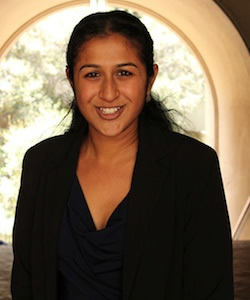When I was eating breakfast this morning with my host family, I was startled to suddenly hear the morning news, usually a background lull of Danish, shift to English. Looking up at the TV screen, I realized that the US ambassador to Denmark, Rufus Gifford, was being interviewed. One of the questions they asked him really struck me: “What can Denmark learn from the United States?”
After living here for almost three months now, I wondered, really, what could Denmark learn? Even though Switzerland replaced Denmark as the world’s happiest country this year, the Danes still have a lot to boast about, despite their small population. Education—including university—and healthcare are free, gender equality is very strong, maternity and paternity leaves are well paid and lengthy, biking is the daily norm, guns are banned, and social responsibility is expected. In fact, though the welfare state requires high levels of taxes to function, the Danes are happy to oblige because the benefits are incredible.
But when I heard Ambassador Gifford’s answer to the question, I was not at all surprised. The ambassador declared that the Danes should learn, from America, to be less modest by increasing their global self-promotion and expressing pride for their national achievements.
The Danes subconsciously follow what they call Janteloven, or the Law of Jante. Written by Aksel Sandemose in 1933, the law has 10 parts that outline societal equality and downplay individual accomplishments and success. Those who want to achieve something special are frowned upon. The law is meant to promote social stability and harmony by devaluing individual effort in favor of collective happiness.
This mentality arose from Denmark losing much of its territory to Germany (Prussia), Sweden, and Norway. Instead of continuing to put effort into furthering foreign policy, the Danes turned inward. They played up nationalistic movements that ensured all Danes, no matter which island of Denmark they lived on or what profession they worked, were equal. The nationalists sought to romanticize all aspects of Denmark, even coming up with the wonderful idea of hygge, loosely translated to “cultivated coziness,” in order to combat the depression of the cold and dark winter months.
The idea of Danes as a united “tribe” pervaded the country, and the introduction of the welfare state emphasized nationwide societal equality. Moreover, I've learned that much of Denmark’s education and social policies were developed based on Nikolai Grundtvig’s quote “Where few have too much and fewer too little.”
It’s quite easy to observe the tribe mentality in everyday life. Citizens almost always give a few kroner to the (very few) homeless individuals that pass through the train cars in Copenhagen. Parents safely leave their babies in their strollers outside of grocery stores while they shop inside. Prisons, known as “open” prisons, allow detainees to live and work normally, and after release, reintegrate quickly in a more beneficial societal position. Additionally, many of Denmark’s institutions are literally built for the people, or folke. The parliament is folketinget, the political parties are called folkeparti, and the church is called folkekirke.
Even the Danish monarchy is downplayed, and members of the royal family are quite often seen doing as the Danes do—such as participating in local swimming races, dropping the kids off at kindergarten on their bikes, and walking the streets. Furthermore, there is little security outside of Amalienborg, the Danish royal palace in Copenhagen. This allows residents and tourists to walk freely in the square right outside the building, because the monarchy is emphasizing equality between them and Danish citizens—the notion that there should be no barriers or hierarchy between the two parties.
So, yes, while the Danes do not make this mentality a global phenomenon, it is something they have proudly and steadfastly maintained throughout the years. Janteloven is definitely a characteristic that makes Denmark unique today, though it may not be "Danish-ly" appropriate to say so. As I enjoy the relaxing Sunday night hygge in my homestay, I can say with full confidence that I support Ambassador Gifford’s call for Danes to renounce their modesty and share some of their societal ideals with the world.

